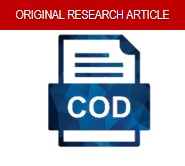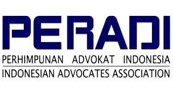Judicial Reasoning in Personal Data Misuse Cases
The Application of the Personal Data Protection Law in Court Decisions
DOI:
https://doi.org/10.46924/jihk.v7i2.350Keywords:
Judicial Reasoning, Misuse, Personal Data, Court DecisionsAbstract
The rapid advancement of digital technology has heightened the risk of personal data misuse, thereby necessitating effective law enforcement under Law Number 27 of 2022 on Personal Data Protection (PDP Law). This study aims to examine judges’ legal reasoning in adjudicating cases of personal data misuse and to analyze the application of the PDP Law within Indonesia’s criminal justice system. Specifically, it assesses the alignment between the ideal legal principles (das sollen) and the practical implementation (das sein). Employing a normative juridical approach combined with qualitative analysis, this research examines three court decisions: Decision No. 77/Pid.Sus/2024/PN Tangerang, Decision No. 78/Pid.Sus/2024/PN Tangerang, and Decision No. 5/Pid.Sus/2023/PN Karanganyar. The findings reveal that judges have begun to internalize the paradigm of personal data protection through the application of Articles 67 and 68 of the PDP Law, although variations in interpretation and implementation persist. The study concludes that Indonesia’s judicial practice is undergoing a gradual transition toward a more consistent enforcement of privacy law, yet further development of jurisprudential guidelines and enhanced judicial capacity remain essential to strengthening privacy protection in the digital era.
Downloads
References
Journals
Bangun, Budi Hermawan, Erwin Erwin, Fatma Muthia Kinanti, Ria Wulandari, Ibrahim Sagio, and Muhammad Rafi Darajati. “Sosialisasi Perlindungan Data Pribadi Sebagai Bagian Dari Hak Asasi Manusia.” Jurnal Pengabdian Kepada Masyarakat Nusantara 4, no. 4 (2023): 3356–65. https://ejournal.sisfokomtek.org/index.php/jpkm/article/view/1678.
Galih Hariyono, Akbar, and Frans Simangunsong. “Perlindungan Hukum Korban Pencurian Data Pribadi (Phishing Cybercrime) Dalam Perspektif Kriminologi.” Bureaucracy Journal: Indonesia Journal of Law and Social-Political Governance 3, no. 1 (2023): 1–12. https://doi.org/10.53363/bureau.v3i1.191.
Kusnadi, Sekaring Ayumeida. “Perlindungan Hukum Data Pribadi Sebagai Hak Privasi.” Al-Wasath: Jurnal Ilmu Hukum 2, no. 1 (2021): 9–16. https://doi.org/10.47776/alwasath.v2i1.127.
Mahameru, Danil Erlangga, Aisyah Nurhalizah, Haikal Badjeber, Ahmad Wildan, and Haikal Rahmadia. “Implementasi UU Perlindungan Data Pribadi Terhadap Keamanan Informasi Identitas Di Indonesia.” Jurnal Esensi Hukum 5, no. 2 (2024): 115–31. https://doi.org/10.35586/jsh.v5i2.240.
Makkawaru, Imam Wahyudi, Abdul Rahman Nur, Haedar Djidar, and Suparman Mannuhung. “Penegakan Hukum Perlindungan Data Pribadi Melalui Sarana Hukum Perdata.” Journal of Innovation Research and Knowledge 4, no. 9 (2025): 6473–6488. https://doi.org/10.53625/jirk.v4i9.9663.
Manurung, Evelyn Angelita Pinondang, and Emmy Febriani Thalib. “Tinjauan Yuridis Perlindungan Data Pribadi Berdasarkan UU Nomor 27 Tahun 2022.” Jurnal Hukum Saraswati 4, no. 2 (2022): 139–148. https://e-journal.unmas.ac.id/index.php/JHS/article/view/5941.
Matheus, Juan, and Ariawan Gunadi. “Pembentukan Lembaga Pengawas Perlindungan Data Pribadi Di Era Ekonomi Digital: Kajian Perbandingan Dengan KPPU.” Justisi 10, no. 1 (2024): 20–35. https://doi.org/10.33506/jurnaljustisi.v10i1.2757.
Nduru, Kurniawan, Muhammad Yusuf Daeng, and Rudi Pardede. “Penegakan Hukum Atas Penyalahgunaan Data Pribadi Di Media Sosial.” Lancang Kuning Law Journal 2, no. 2 (2025): 127–35. https://doi.org/10.31849/lklw.v1i01.23281.
Puteri, Camelia Billah, Joelman Subaidi, and Budi Bahreisy. “Analisis Putusan Hakim Terhadap Tindak Pidana Dalam Mengakses Sistem Elektronik Orang Lain Tanpa Hak: Studi Putusan Nomor 9/Pid.Sus/2021/PN Pli.” Jurnal Ilmiah Mahasiswa Fakultas Hukum Universitas Malikussaleh 8, no. 2 (2025): 1–13. https://doi.org/10.29103/jimfh.v8i2.21177.
Putro, Ary Widhiatmo. “Analisis Yuridis Putusan Hakim Mengenai Perkara Informasi Dan Transaksi Elektronik: Studi Kasus Putusan Hakim Nomor: 19 / Pid.Sus / 2011 / PN.Ska.” Jurnal Dinamika Hukum 6, no. 2 (2015): 31–43. https://ejurnal.unisri.ac.id/index.php/Dinamika_Hukum/article/view/4210.
Sibarani, Mery Rohana Lisbeth, Bambang Supriadi, Zabidin Zabidin, Herniwati Herniwati, and Ozha Tiwa Hiawananta. “Penerapan Konsep Pembuktian Digital Dalam Kasus Kejahatan Teknologi Informasi.” Jurnal Kolaboratif Sains 8, no. 1 (2025): 390–95. https://doi.org/10.56338/jks.v8i1.6742.
Silalahi, Johan Alfred Sarades, Yuspika Yuliana Purba, and Muhammad Fadly Nasution. “Analisis Yuridis Terhadap Mekanisme Perlindungan Data Pribadi Dalam Sistem Informasi Elektronik Berdasarkan Perspektif Hukum Pidana Di Indonesia.” Jurnal Minfo Polgan 14, no. 1 (2025): 604–13. https://doi.org/10.33395/jmp.v14i1.14810.
Thesis
Ginting, Aleksander. “Analisis Yuridis Tindak Pidana Mengakses Sistem Elektronik Milik Orang Lain.” Universitas Medan Area, 2017. https://repositori.uma.ac.id/jspui/bitstream/123456789/24953/1/138400081 - Aleksander Ginting - Fulltext.pdf.
Syariah, Khusnul. “Tinjauan Yuridis Terhadap Tindak Pidana Manipulasi Data Kependudukan Melalui Registrasi Kartu Prabayar: Studi Putusan Nomor: 283/Pid.Sus/2021/PN.Pkl.” Universitas Hasanuddin Makassar, 2022. https://repository.unhas.ac.id/id/eprint/17683/2/B011181468_skripsi_12-07-2022 1-2.pdf.
Books
Muladi, Muladi, and Barda Nawawi Arief. Teori-Teori Dan Kebijakan Pidana. Bandung: Alumni, 2010.
Rahardjo, Satjipto. Ilmu Hukum. 8th ed. Bandung: PT Citra Aditya Bakti, 2014.
———. Penegakan Hukum Progresif. Jakarta, 2010. PT. Elex Media Komputindo.
Rawls, John. Justice as Fairness: A Restatement. Edited by Erin I. Kelly. Cambridge: Belknap Press, 2001.
Soekanto, Soerjono. Faktor-Faktor Yang Mempengaruhi Penegakan Hukum. Jakarta: Rajawali Pers, 2016.
Downloads
Published
Issue
Section
License
Copyright (c) 2025 Clarissa Mayella Chandra, Rasji Rasji

This work is licensed under a Creative Commons Attribution 4.0 International License.
Authors who publish with this journal agree to the following terms:
- Copyright on any article is retained by the author(s).
- The author grants the journal, the right of first publication with the work simultaneously licensed under a Creative Commons Attribution License that allows others to share the work with an acknowledgment of the work’s authorship and initial publication in this journal.
- Authors are able to enter into separate, additional contractual arrangements for the non-exclusive distribution of the journal’s published version of the work (e.g., post it to an institutional repository or publish it in a book), with an acknowledgment of its initial publication in this journal.
- Authors are permitted and encouraged to post their work online (e.g., in institutional repositories or on their website) prior to and during the submission process, as it can lead to productive exchanges, as well as earlier and greater citation of published work.
- The article and any associated published material is distributed under the Creative Commons Attribution 4.0 International License



 Sinta ID:
Sinta ID: 


















